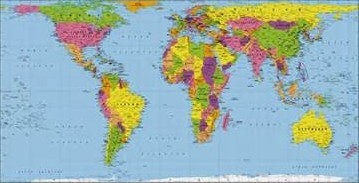The Popularity of Prejudice
QUOFLECTIONS™
ON SPIRITUALITY AND ETHICS
“Man must evolve for all human conflict a method
which rejects revenge, aggression and retaliation.
The foundation of such a method is love.”
Dr. Martin Luther King
Have we noticed? Except for members of fringe groups, no one today claims to have racial prejudice.
I’m sorry to disappoint, but I have such prejudices. Like the poet Charles Lamb, “I confess that I do feel the differences of mankind, national and individual.” Lamb continues, “I am, in plainer words, a bundle of prejudices.”
Raised in a racially segregated community in suburban Detroit, I first met a black person when I began working at age seventeen. I think I am free of prejudice. Then one day at lunch, I make an impetuous crack about blacks. Oscar Bagby, an older black man, is seated at the table. I am too embarrassed to apologize. When I later approach him, Oscar forgives me.
Shortly thereafter, Oscar’s 16-year-old son falls on a basketball court and a rival, perceiving opportunity for vengeance, purposely stomps on his son’s head. Oscar’s son dies. To my amazement, he forgives this boy. As Dr. King suggests, Oscar rejects revenge by choosing love.
What characteristics come to mind as we survey a few nationalities: Japanese? Pakistanis? Mexicans? French? Liberians? Surely, there are significant differences in the languages and cultures of these nations. When negative characteristics come to mind, how do we determine if they are prejudices?
Fifty years ago, Gordon Allport analyzed this issue in his book, The Nature of Prejudice. This Harvard psychology professor says it is impossible to always be open-minded. Allport states we must use categories to evaluate our experiences and make sense of the world. New experiences are added to the mental framework constructed from our impressions of past events.
Nevertheless, there are significant differences between provisional judgments and hardened prejudices. Allport concludes that prejudgment is open to new evidence while prejudice is “not reversible when exposed to new knowledge.” The goal, he suggests, is to strive toward the “rare condition of habitual open-mindedness.”
In a striking example of prejudice, Allport cites a white truck driver in Rhodesia (now Zimbabwe) who comments as he passes some blacks, “Those lazy brutes.” Several hours later, he notices a group of blacks singing as they load a truck with 200-pound sacks of grain. Instead of modifying his view regarding their laziness, he dismisses them as “savages.”
My article last week on the detainment of Josue, a Haitian immigrant, prompts one reader to state she has “very different feelings about immigrants.” The reason: A man who emigrated from North Africa is taking advantage of her daughter.
While we sympathize with the agony “Mary” endures, we also see she has negatively categorized all immigrants based on one traumatic experience. Mary projects her burdensome anger on people of many nationalities.
Even worse, I witness a local store manager berating two young Hispanic men. “Joe” castigates these teenagers for being rude. As I begin to suspect this reflects his prejudice, he confirms it by angrily declaring that if they enter the store again he will call the police. Rudeness prompts ostracism and the threat of criminal consequences?
Ironically, Joe acts out the very behavior he accuses the young men of committing—only Joe is more aggressive than these teens. Indeed, they seem stunned by Joe’s reaction. When confronted with his anger, they are speechless.
I approach Joe a few days later and tell him I am troubled by his treatment of these young men. He assures me he is without prejudice. He views all people in his store equally as shoppers. Still, Joe’s hostility appears disproportionate to the offense. In my opinion, he discriminates against these young men.
Racial prejudice and discrimination may be more common than we imagine. If we listen to the wisdom of King, Lamb and Allport, we will acknowledge that all of us have prejudices. Our task is to identify our prejudices, challenge them with habitual open-mindedness, and—appreciating their God-given diversities—reject aggression as we strive to love all peoples.
©2006 Harry Rix. All rights reserved.
Related Articles
Transforming Our Way of Thinking
How Do We Pursue Peace
Glimpsing Our Shadows
Mental Illness Prompts Boston Bomber
Counseling a Sex Offender

